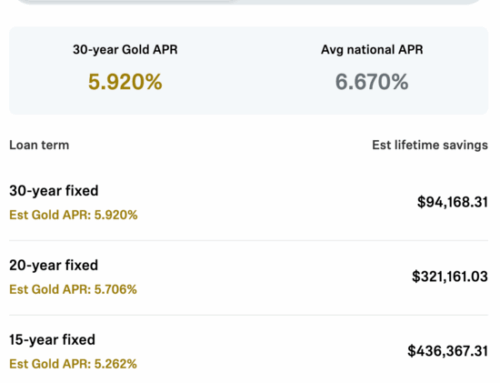Bill Pulte, director of what has been known as the Federal Housing Finance Agency, shed light on certain plans he has for the government-sponsored enterprises during an appearance at an industry event on Monday, but deferred to President Trump on a conservatorship exit.
Pulte told attendees at the Mortgage Bankers Association’s secondary market conference in New York that whether or not to privatize the GSEs “is a decision for the president of the United States.”
Were a conservatorship exit to occur, Pulte said he would work closely with Treasury Secretary Scott Bessent, who has said he would not want to put upward pressure on interest rates in the course of one.
“We’ll see what happens but ultimately Scott Bessent and I are very aligned, and we meet regularly about this and every other topic,” Pulte said.
Where reorganization at the GSEs is headed
Pulte also explained how the cuts and changes he’s been instituting at the enterprises tie into building up the GSEs’ finances in such a way that they’d be in advantageous position for a release from conservatorship.
“In many ways, we’re trying to do our own DOGE effort,” Pulte said, referring to the Department of Government Efficiency. He reiterated previous statements indicating he would welcome DOGE help but also noted that he didn’t think it would be necessary.
He said his focus on efficiency at the GSEs, which are quasi-governmental agencies that buy a high volume of mortgages made in the United States, will be done while preserving their soundness and aimed at building value for them.
Pulte said he has just recently found a couple hundred million dollars of savings at the GSEs, which he described as multilayered bureaucracies. He indicated there could be more details on some company cuts released later this week.
“I think their earning potentials can go up,” Pulte said of the GSEs. “A lot of people say that the businesses are worth a certain amount. I think they’re worth way more than what some people are saying that they’re worth.”
He noted that other countries, such as Saudi Arabia, have found the U.S. model attractive.
Pulte was dismissive of Democrats’ allegations that some of the cuts and reorganization he has done could be illegal, calling it “nonsense.” He said he had a conversation with Sen. Elizabeth Warren, D-Mass., about this in which she lacked understanding of the housing market.
Thoughts on affordable housing supply
Pulte, whose family has long been involved in the homebuilding industry, said he’s interested in seeing more done to support manufactured housing as a source of affordable housing.
“I don’t think that the average American fully understands how much new construction is advanced in terms of technology,” he said, noting that this is true both when it comes to traditional home and factory built structures.
However, a lot of building is done locally, and the federal government’s role will likely be limited outside of deregulation, said Pulte.
“I wish I could tell you that we could do more than the federal level, but a lot of it is just getting the hell out of the way,” he said.
Pricing in the second-home market, credit modernization at GSEs
Pulte was noncommittal when asked separately about the size of the lending markets the GSEs operate in and loan-level pricing adjustments for non-primary residences, but offered some insight on the framework for his thinking.
Pulte said his focus is on operational efficiency at the GSEs more than the size of the market they’re involved in or what particular loans they buy.
As for loans on second homes, Pulte said simply, “We’re looking at that.” “Generally, things should be priced for their risk,” he added.
Pulte said he would be open to using more advanced credit metrics at the enterprises, as long as the process is cost-effective.
“I don’t like some of the things I’ve heard in terms of the cost,” he said.
What’s in a name, social media use
When MBA Chair Laura Escobar asked Pulte about his use of the “US Federal Housing FHFA” to refer to his agency, Pulte explained that it puts a focus on something that has been “underrepresented” and central to its role.
“It’s literally saying what the name is,” he said, noting that at some point he may stop using “FHFA” in references to the agency.
In response to a question about his use of social media platform X to post signed documents indicating policy changes, he said it has been an effort at immediacy and transparency.
“Do you want to know that I just signed this? Or do you want to wait two to seven days?” Pulte said, recounting how he has explained his posts.

